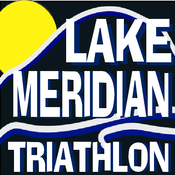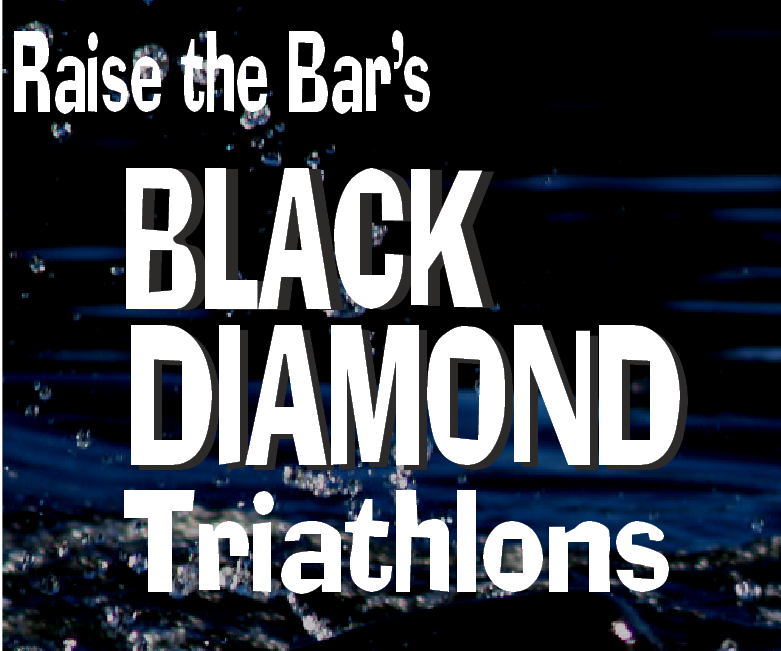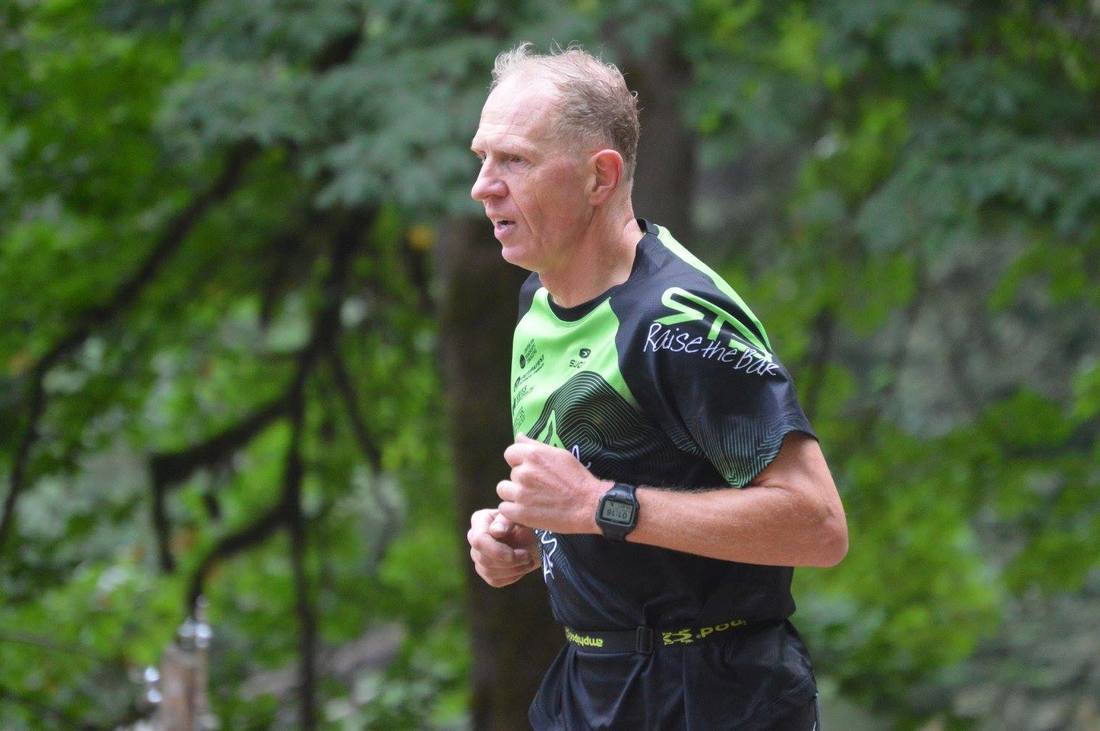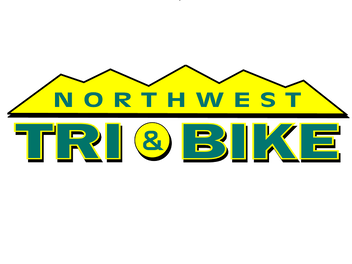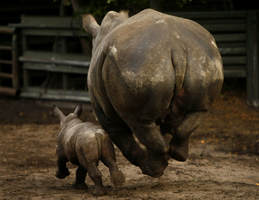 By Holly Pennington, PT, DPT/Outpatient Physical Therapy Your gluteus maximus may be the largest muscle in your body, but is it your strongest? Known for its size and power, the glute max has the potential to be a triathlete’s greatest asset. But, due to lifestyle factors such as jobs that require prolonged sitting, this muscle often becomes stretched out and disengaged, causing smaller, surrounding muscles to pick up its slack. Over time, this causes a domino effect of compensations and injuries in areas as close to the hip as the low back and as far away as the foot. If your gluteus maximus is not all that it was created to be, but you wonder if squats and bridges are really worth your time, these 7 benefits of stronger glutes are for you. 1. Stop knee pain. Anterior knee pain (such as patellar tendonitis), is one of the five most common injuries amongst triathletes. Because weak hips cause the knee joint and thigh muscles to work overtime, treatment for anterior knee pain focuses on hip strengthening instead of knee strengthening. Keeping your knees healthy and pain free means keeping your gluteus maximus and gluteus medius strong. 2. Prevent hamstring cramps. The July RTB blog article discussed the neuromuscular control theory for Exercise Associated Muscle Cramps (EAMC). The gluteus maximus and hamstrings share common functions during the swing and stance phases of running, the extension phase of freestyle kicking, and the backstroke of pedaling while cycling. Weak glutes place an increased demand on your hamstrings, making them more likely to prematurely fatigue and, eventually, cramp. 3. Reduce back pain. Scientific research links gluteal muscle weakness with low back pain. In triathletes, back pain is most often associated with the cycling position. Due to the proximity to the lumbar spine, your hips directly impact your lower spine mobility and stability. On the bike, you need to maintain a stable yet flexed position in your spine for prolonged periods. In other words, you need the support of your strong and powerful glutes. 4. Improve your posture. When you sit for prolonged periods, your posterior hip (gluteus maximus) becomes stretched out, weak and disengaged while your anterior hip (hip flexor) shortens. Tight hip flexors cause the pelvis to tilt forward, resulting in a “hunched” or “slouched” posture that moves your center of gravity forward. This type of posture alters your running form, cycling comfort and swimming alignment.
7. Help you run faster. Efficient runners have a strong core – which includes hip muscles - and take advantage of the power that the large gluteus maximus can generate. If you are running with a gluteus maximus that under functions, you are asking too little of your large muscles and too much of your smaller ones, ultimately decreasing the efficiency – and speed - of your run.
0 Comments
RTB invites one member a month to tell us their story of "Why I Tri". Here is this month's contributor - athlete, swim coach, husband, master gardener, realtor, renovator, and all around good guy, Chris Hall. 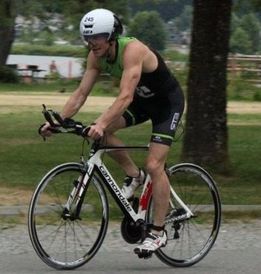 At Elton Eastside Tri - 2018 At Elton Eastside Tri - 2018 I grew up playing sports and being active from early on. Some of you may know, I learned to swim when I was 3, and have clear memories of chasing the instructor, Skip, across the pool as he backed away from me. Soccer evolved into swimming in high school, where I tried my first multi sport event – the Greenlake Biathlon in 1979. Triathlon was in the early stages then, and I did not do one until 1984 at Western Washington University, and one at Lake Padden in Bellingham the same year. After college, life changed, and I dropped the multi sport habit for work for the next 15 years or so. Back in those years, I did do some scary things, probably the scariest, was jumping out of an airplane. In 1979, the Issaquah Parachute center existed, and I made 5 jumps, preparing for a 10 second free fall, that I never did, due to school and financial considerations. I came back to Triathlon in 2006, but had yet to find my Tribe in RTB, which happened in 2009. 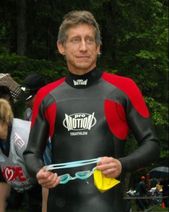 Chris at Cascades Edge - 2010 Chris at Cascades Edge - 2010 I came back to Triathlon in 2006, but had yet to find my Tribe in RTB, which happened in 2009. Prior to joining RTB, I had a phone conversation with Patty (first time) that went something like this: Chris: I see you have a swim workout on Monday and Wednesday evenings, how do I sign up? Patty: How much swimming have you done? Chris: I swam in high school and college at UW. Patty: Oh, you need to come to the Tuesday morning workout at 5:30am. Chris: 5:30am? That’s kind of early, why not the evening swim? Patty: No, you need to swim in the morning workout! Chris: (sheepishly, reluctantly), ok It took a while for Patty to allow me the option of coaching a swim workout, which I did Wednesday’s for a while. Unbeknownst to me then, my future wife, Andriette, was in that workout. 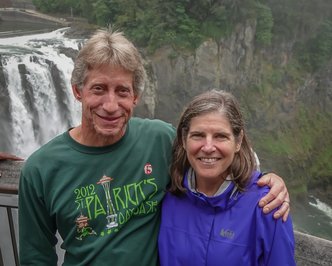 One of RTB's most joyful happenstances- the meeting and marrying up of Chris & Andriette Hall!! One of RTB's most joyful happenstances- the meeting and marrying up of Chris & Andriette Hall!! So, why do I tri? It has become a lifestyle, encompassing fitness, friends, social involvement and the aforementioned Wife, who of many things, makes me a better person. RTB and all it represents brings to mind a great quote from Goethe: Until one is committed, there is hesitancy, the chance to draw back, always ineffectiveness, concerning all acts of initiative (and creation). There is one elementary truth the ignorance of which kills countless ideas and splendid plans: that the moment one definitely commits oneself, then Providence moves too. All sorts of things occur to help one that would never otherwise have occurred. A whole stream of events issues from the decision, raising in one’s favour all manner of unforeseen incidents and meetings and material assistance which no man could have dreamed would have come his way. Whatever you can do or dream you can, begin it. Boldness has genius, power and magic in it. Begin it now. Johann Wolfgang Von Goethe 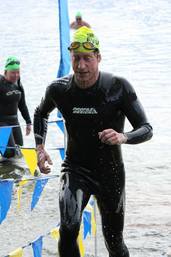 I believe everyone who Tri’s, finds their own version of genius, magic and power by participating in Multisport. I put this to practice when I signed up for the Skaha Ultra Swim in Penticton, BC, this last August. Swimming 7.38 miles (11.8km) was a major challenge that I am proud of completing. Finishing 5th out of 80 finishers, first in my age group, missing Scott Lautman’s (Long distance swimmer – English Channel etc. and Olympic qualifier) age group record from 2004 by 14 seconds (2:56:59 vs 2:57:13 for me). I still have a few chances to get that record, if no one else does. A typical Tri for me goes like this – solid swim, often first out of the water, get passed on the bike and slog through the run, as I seem to have lost the running speed I used to have as a youth. I took Brad Williams words of wisdom to heart, when he said, “it is more about participating and not winning” for most people. Given that approach, I believe I have a few more years left in me to participate. Chris Hall If being part of the RTB community interests you, we welcome all adults of any level of ability, motivation, time availability.... We work hard to create a fun, supportive, and friend-building place for people who like to swim, bike, run, or all three. Check out the Team HERE or Email Patty for more info.
|
Raise the BarRace reports, upcoming events, news, and more, from RTB. Archives
September 2023
|
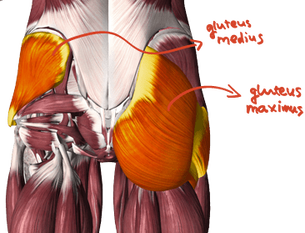

 RSS Feed
RSS Feed
